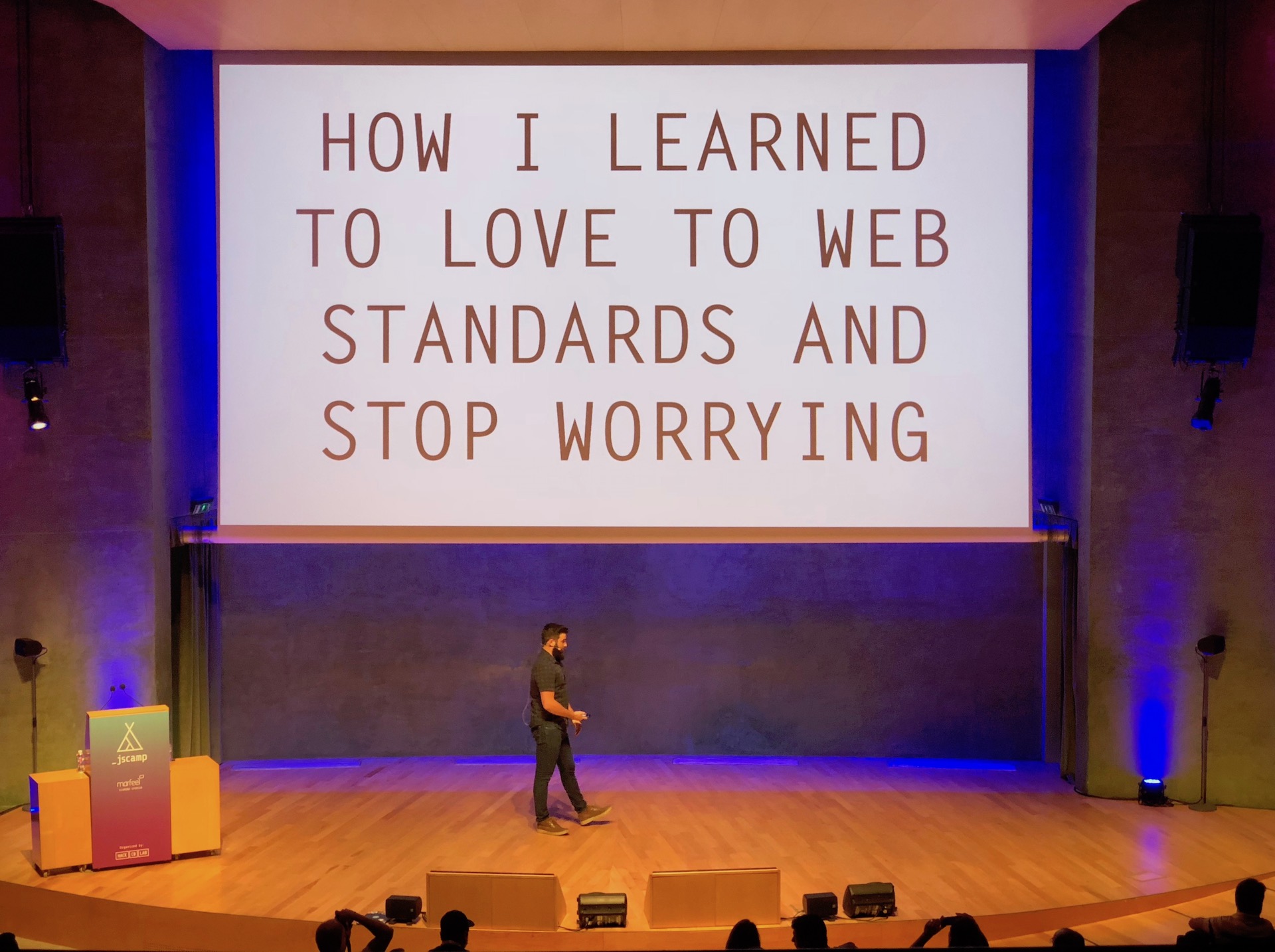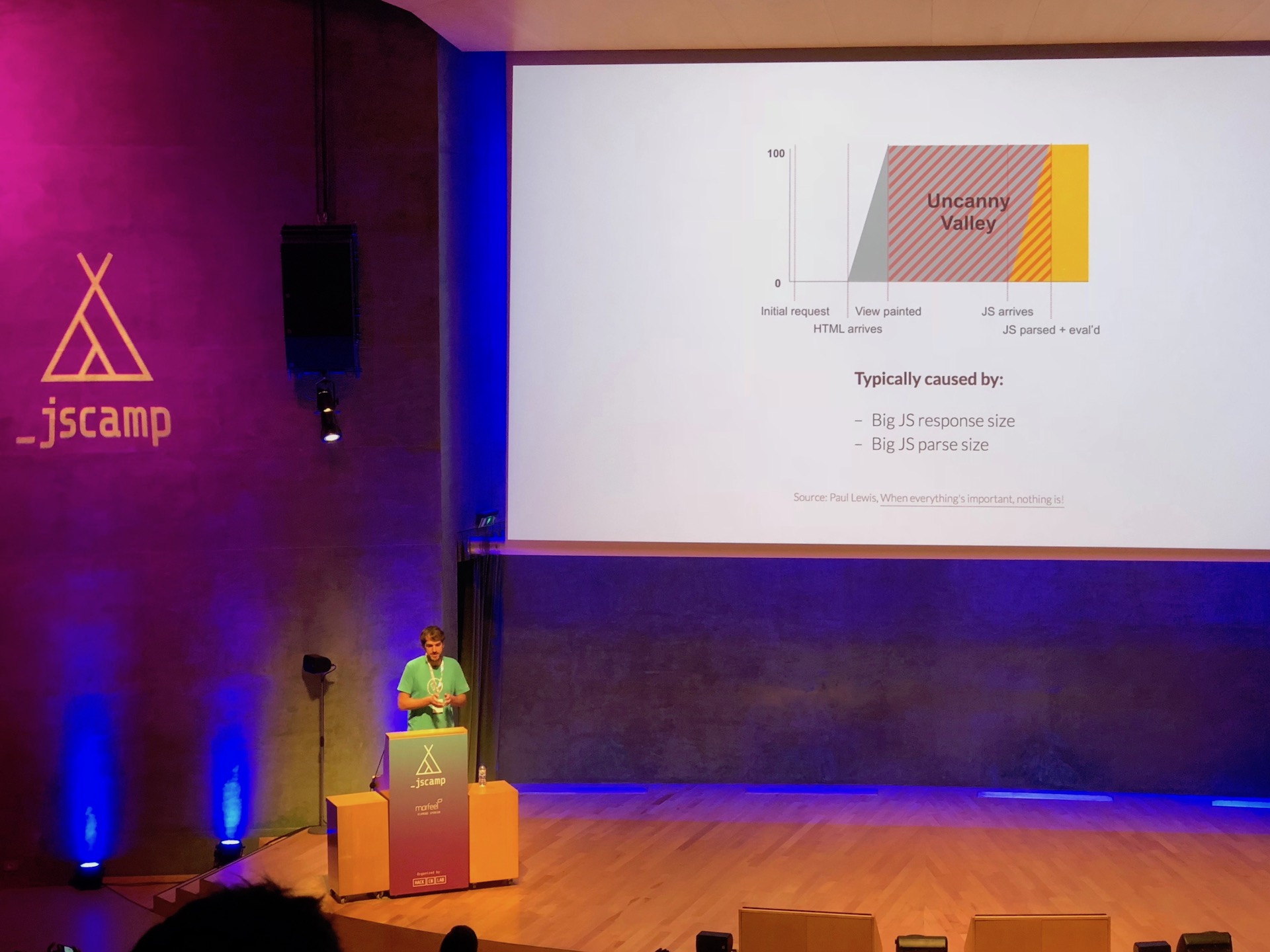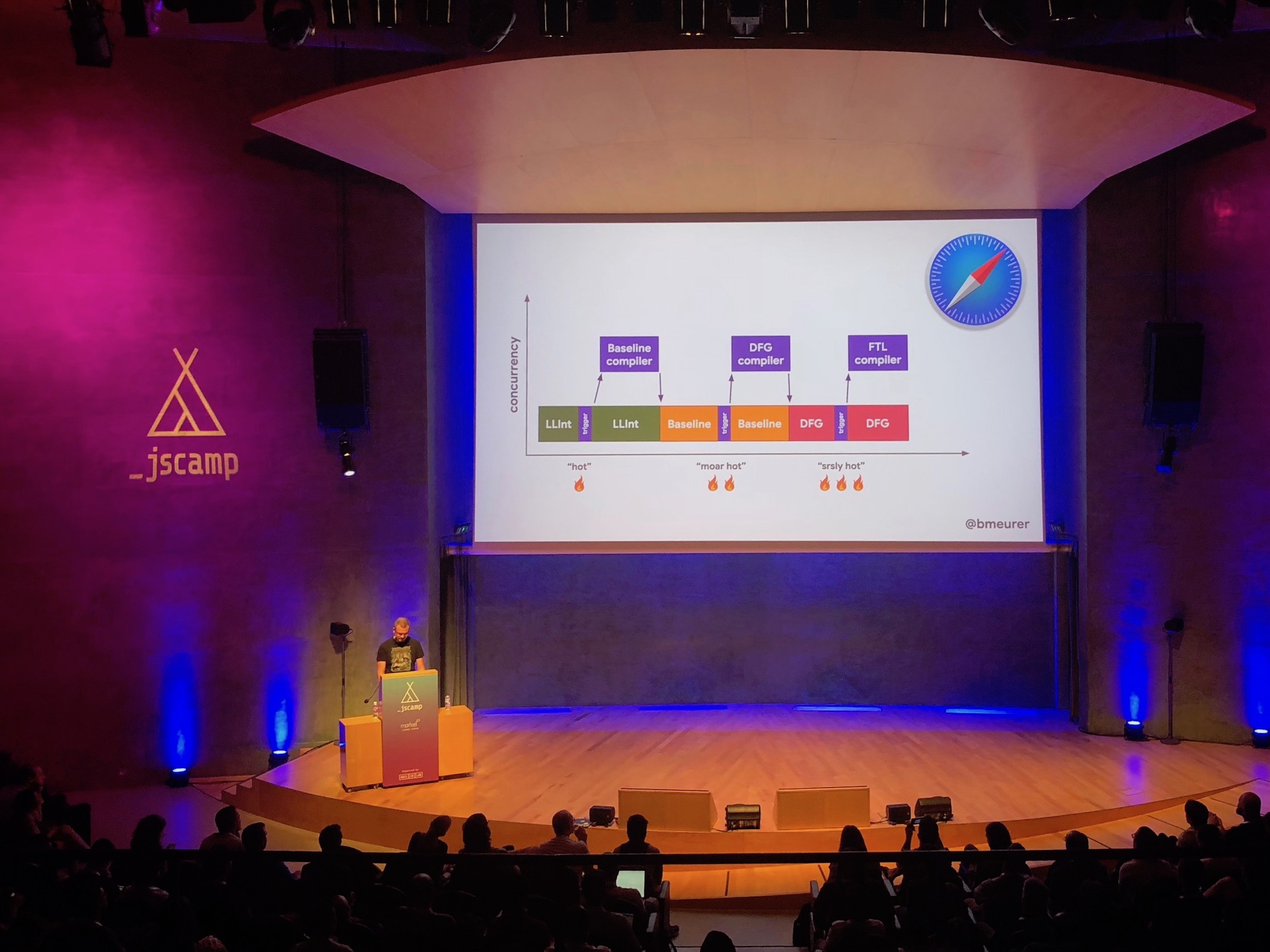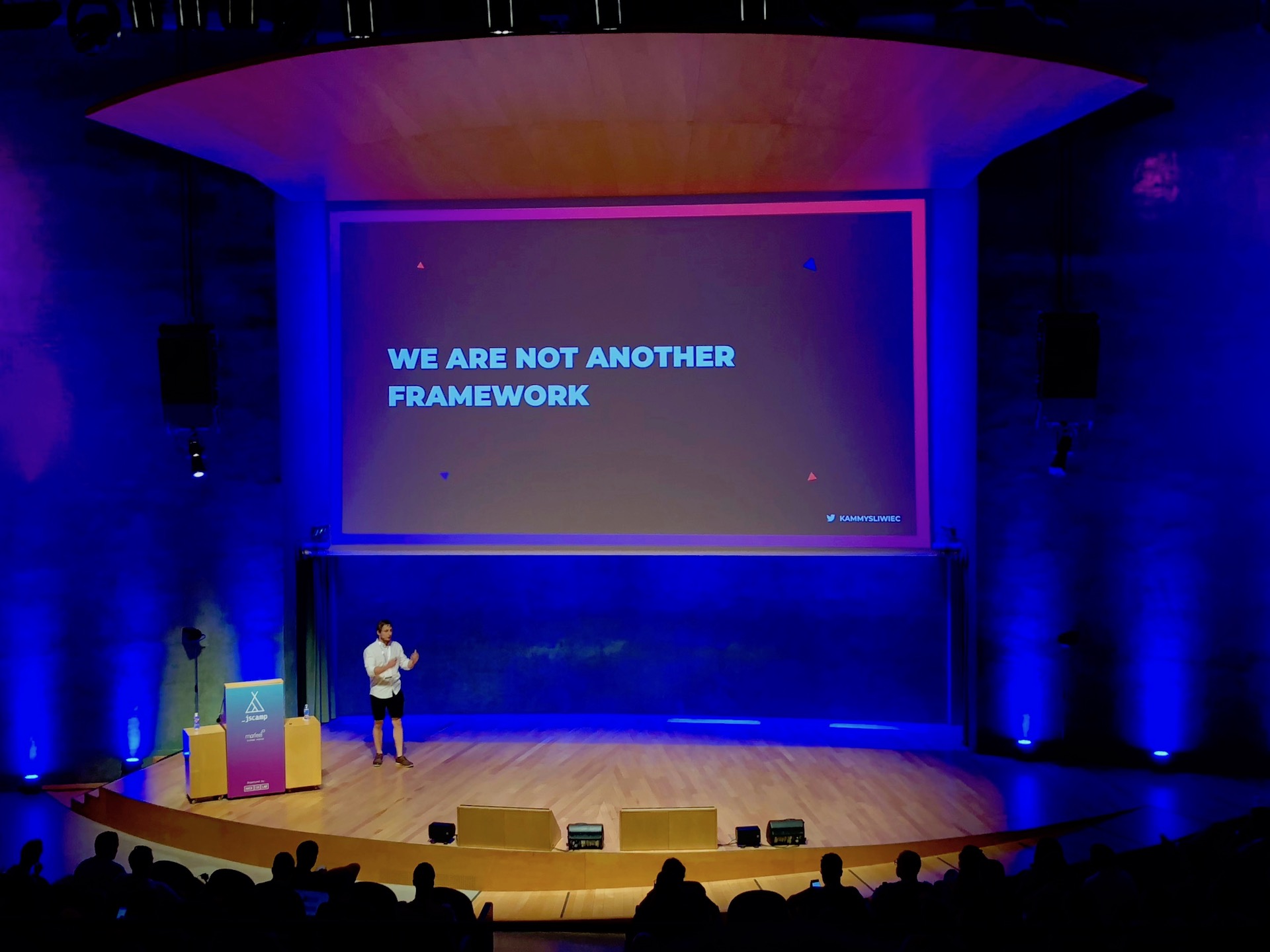JSCamp 2018 Barcelona
Every year, new conferences and events pop up showing the wonders of technologies and frameworks. This year's newcomer was JSCamp, a two day Javascript-focused event celebrated in the beautiful city of Barcelona, which I participated in back in July.
Prelude
I must say that JSCamp didn't appear out of nowhere: It's the natural evolution of AngularCamp, which has been on track for several years. During these years, the trend on the JS ecosystem moved from a major player that was widely used to a more fragmented scenario, hence the need of having an event that covers a bigger amount of technologies.
Lineup couldn't be better this time, with a two day schedule full of speakers from Google, Mozilla, and even Microsoft showcasing bleeding edge JS-based technologies, and giving us further knowledge that will ultimately improve the quality of the apps we build.
The next paragraphs sum up my thoughts and conclusions after enjoying this year edition of JSCamp.
Highlights
Web standards will save us, or that was what we learnt from Mike Hartington. The truth is that sites from 1996 still work on modern browsers, and we shouldn't thank anyone for that. Web components are a hot topic nowadays, we will see if they rise above the frameworks we all use.

We live in a world dominated by the client-side rendered pages, but the good old server-side rendering can also give us some key benefits... So why don't combine them? Johannes Ewald explored with us the good and bad parts of Universal Web Apps, explaining how to deal with the most common issues we're prone to experience.
A clear case where we get huge benefits of mixing these two approaches is SEO optimisation. Web crawlers might not be happy about rendering your Javascript code and that's why we must serve the most relevant content within page load. Martin Splitt did a nice talk out of this, showing all the challenges he had to face while developing an app for the show.

Building real-world desktop apps using web frameworks is possible today and slack is a pretty good example on how to do so. Anuj Nair demonstrated to us how Electron made it possible to offer a desktop-grade cohesive experience of their app while reusing most of the existing deployments they had for the web client.
Modern JS virtual machines like V8 or SpiderMonkey had also their spot on the show. Benedikt Meurer told us what happens behind the scenes when we run our JS code and how they do behave in stressful situations, leading ultimately to some tips on how to optimize the code we write.

NestJS has proven it was possible to bring the focus from backend coders into Javascript again. Built over NodeJS and typescript, it combines elements of software engineering paradigms like Object Oriented Programming and Functional Programming that might be familiar for everyone who worked in the backend.
Kamil Myśliwiec presentation led us to rethink how we will build the enterprise architectures that will serve the apps of the future by showing the advantages of choosing such platform.

Where to watch
The awesome team behind JSCamp posted all the talks featured in this blog post on their YouTube channel. Don't forget to take a look on them!